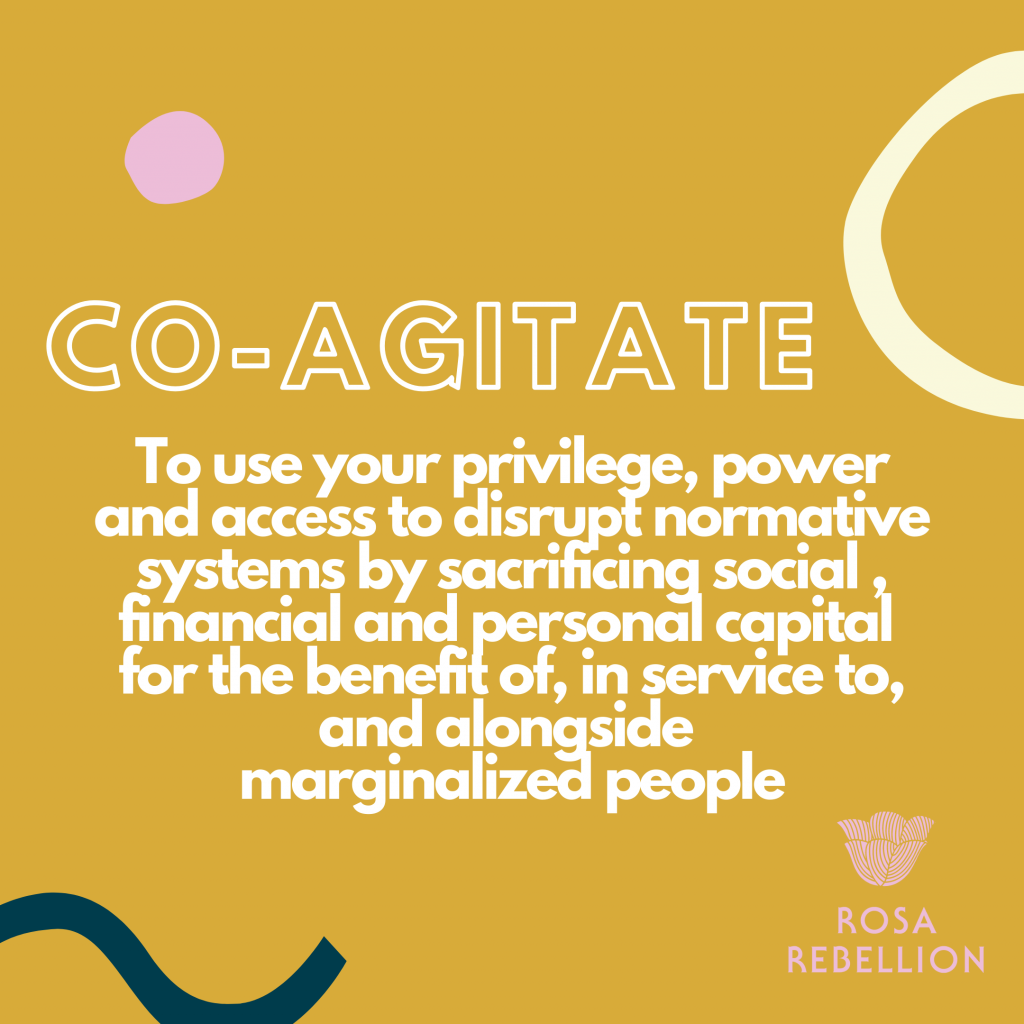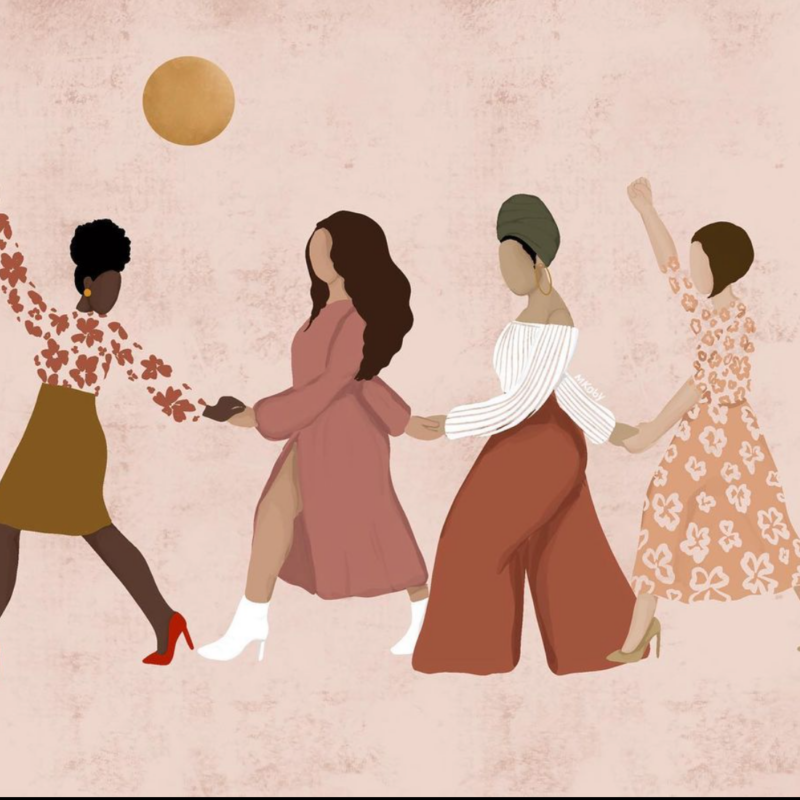“I am not free while any woman is unfree, even when her shackles are very different from my own.” – Audre Lorde
Evoking the tone of Beyonce’s call to Get in Formation, (if it’s been a while, go blast that thing on Spotify for a quick vibe) the question before us as we move into 2022 is, what will your anthem be to move you to answer the cry for racial justice? How might you leverage, and when necessary, cede power, privilege, and position to disrupt the reality of inequity, harm, and injustice in your neighborhoods, places of worship, schools, businesses, and the cities we all call home? As we reflect on this past year and set goals and aspirations for the new year, my challenge to us all is to consider what the work of racial justice requires from each of us. How might we each commit to move from perhaps positions of apathy or passive allyship to an active posture of co-agitation, to join the collective work of community equity? Because the truth is, you are either part of dismantling systems of oppression or maintaining them. There’s no neutrality.
I’ve written the below letter to inspire, inform, and instigate how we each show up as co-agitators in 2022—I hope you’ll consider getting in formation.
Feature illustration by Melissa Koby.



Virginia Cumberbatch is a racial justice educator, writer, and the co-founder of Rosa Rebellion. She’s the co-author of As We Saw It and currently serves as a brand ambassador and Diversity and Equity Board Member for lululemon. When she’s not supporting national brands in deepening their commitment to racial equity or elevating the voices of women of color through the mission of Rosa Rebellion, she’s on the hunt for vintage threads and building community in her hometown of Austin, Texas.


Dear Radical Woman,
Let’s be honest, it may not have brought the dramatic disruption of 2020, but 2021 was still a lot. We continued to navigate a global pandemic, forced to adjust to the unknowns of new covid-19 variants, disrupted plans, rhythms, and perhaps dreams. We were overcome with the impact and shock of natural disasters and grappled with the political turbulence playing out in our community schools over mask mandates and curriculum revolutions. There’s been a lot to digest, a lot to contend with, and yet, interconnected to each of these collective experiences is the continued brutalization of melanated bodies.
“Race and racism is a reality that so many of us grow up learning to just deal with. But if we ever hope to move past it, it can’t just be on people of color to deal with it. It’s up to all of us—Black, white, everyone—no matter how well-meaning we think we might be, to do the honest, uncomfortable work of rooting it out.” — Michelle Obama
While 2020 prompted heightened visibility around racial injustice, the momentum and urgency spurred by those moments quickly waned. The black boxes disappeared from our Instagrams, the hashtags changed on our Twitter headlines, and the earnestness that perhaps brought new conversations to our dinner tables, board rooms, or pulpits was short-lived. The truth is, our pursuit of racial justice cannot be episodic, only moved by inflection points or news headlines. Too many of us, as business leaders, mothers/parents, educators, neighbors, humans, who created space for this discourse in 2020 saw George Floyd and Breonna Taylor, the stories of missing and murdered Indigenous women or perhaps the violence against our AAPI community, as merely a moment. But the truth is, today, tomorrow and the year ahead are not for postures of apathy, unfulfilled promises, performative gestures. The value of Black life, the visibility of Latinx and Indigenous stories, and the protection of AAPI bodies should innately be seen, known, and connected to our everyday posture, brand positions, social-political practices, and cultural paradigms.


The call to actively dismantle systemic racism and oppression is not merely a response to how long a hashtag remains in our Instagram or Twitter feed, nor complete after our participation in a rally or the performance of a PR statement. No, business leaders and consumers are being called to move beyond the intellectualization or performance of racial justice to actively disrupt oppressive systems—this will require moving your investment from merely a company-wide book club or a conveniently timed tweet to intentional decision making that alters practices, processes, and even personal paradigms.
“In a racist society, it is not enough to be non-racist. We must be anti-racist.” — Angela Davis
While the responsibility to reconcile injustice most definitely rests in the hands of elected officials, justices of the peace, law enforcement, and our community leaders, the work of racial justice also lies in the hands of all of us who consider ourselves a part of our community stories. That includes and, in many ways necessitates, the visceral and visible investment and intention of those of us setting vision and building missions. Our brands, our organizations, our institutions are the drivers of our post-powerful tool, money, and the architect of one of our most demonstrative devices, storytelling. Business leaders are being asked; what is your racial justice ethos? How does your mission align with racial equity? Will you remain a silent character whose complicity nurtures hate, or will your voice and hands actively work to dismantle systems of oppression? Will you leverage your position, your power, authority, and perhaps your privilege to empower and affirm the oppressed, or will you allow privilege to simply shield you from the pain, suffering, and injustice we have come to witness? Will you ask the uncomfortable question, will you commit to the inconvenient process, will you interrogate precedent and question your own agenda?
The journey to equity, the road to justice will require much more than good intentions, woke tweets, performative statements on a brand’s website, a black square on Instagram, diversity hirers, or donations. No, I believe Dr. Angela Davis’ distinctive words are ever true and decidedly critical for companies and organizations across the world. Our longing to see justice requires deliberate, sustained investment to shift our organizational paradigms, loudly agitate our institutional practices, and challenge the problematic private and public behaviors that drive them.


Each of us must hold ourselves, the organizations we influence, and the spaces we belong to accountable—disrupting the distortion of truth, and the maintenance of harmful narratives. Let us remember that we all have agency in being the architects of a new reality, and the storytellers of a new story.
So, let’s consider the following practices this year:
• Share stories beyond inflection points, holidays, campaigns, and annual reports
• Bring your employees and community along your journey—allow them to serve as a real-time sounding board and accountability partner
• Create a space for feedback and to be challenged—you need to cultivate a brand that acknowledges, honors, and values critique
• Be transparent about your missteps and mishaps, sharing the good and the ugly is a part of building trust and offering insight into your full journey
• Invite different voices to offer updates around new practices and processes—offer authentic insight into your journey that creates space for truthful and raw discourse, not just a canned PR update
• Listen and learn from BIPOC voices (but make sure you compensate us for our time, contributions, and knowledge!)
• Share the mic with women of color
• Do your OWN work. (Just a reminder, Google is free). Do not rely on others to dictate what co-agitation looks like for you

“To bring about change, you must not be afraid to take the first step. We will fail when we fail to try.” — Rosa Parks
In this moment a lot of folks are asking the question “where do I start?” or “what do we do?” Even in the midst of a pandemic, the cry for racial justice is loud. For many who have just arrived to the conversation and are exploring their personal and collective response, it can be overwhelming. But that does not mean you can or should opt-out. Instead, how can you find your role in co-agitation? A term that centers action, challenges comfort, complicity, and convenience, and demands ongoing disruption to the spaces you are called to. At Rosa Rebellion we are inviting all beings to shift from ally—a position that can often support complacency or distant support where we value the idea of equity but aren’t willing to labor for it—to the position of co-agitator—a posture that mandates your intentional action and investment. (Join Rosa Rebellion for our racial justice 2022 cohort—a one-year program that specifically invites self-identifying white women willing to do the work). Nominations/applications are now open, click here).
Doing good is just that, good. Donating is good. Volunteering is good. But change, justice requires actively fighting injustice, inequity, and inadequacy, it means to sacrifice and maybe putting yourself and those around you in uncomfortable positions. Fighting racial injustice requires action in the spaces you are called to. And be careful not to attribute these travesties of humanity to history or some hypothetical system or person, be diligent to attune yourself to the ways in which macro/microaggressions and systemic oppression are on full display in your office (virtual or not), neighborhood, children’s school, family/friends, and places of worship.
What will your investment in racial equity look like moving into the new year? How will you champion and elevate the voices of women of color? ? (Learn how you can invest in The REBEL Fund, Rosa Rebellion’s new space to finance racial justice projects by women of color, click here to donate). How will you recalibrate your practices and refresh your efforts with this renewed opportunity of time? As you reflect may these reminders support you in creating new intentions:
As you reflect may these reminders support you in creating new intentions:
• Your anti-racism must acknowledge the pain, trauma, systemic oppression of ALL communities or color
• Your anti-racism requires dismantling white supremacy
• Your anti-racism needs to be intentional, not performative
• Your anti-racism needs to be unapologetic, not neutral or conditional
• Your anti-racism cannot center your comfort, but must instead elevate truth
• Your anti-racism must start today, not tomorrow.
• Your anti-racism needs to be visible, not intellectual
• Your anti-racism requires you to be bold, not meek
• Your anti-racism should inform our private and professional decisions, not just political vote
• Your anti-racism needs to be pervasive and sustained, not merely a response to how long a hashtag remains in our Twitter feed
• Your anti-racism must start today, not tomorrow
Signed an exhausted, but hopeful,
Virginia A. Cumberbatch
To learn more about the vision of Rosa Rebellion or collaborate, click here or contact us at [email protected].






